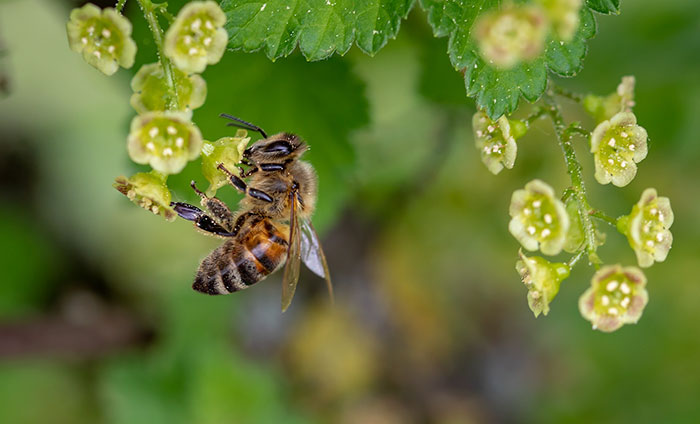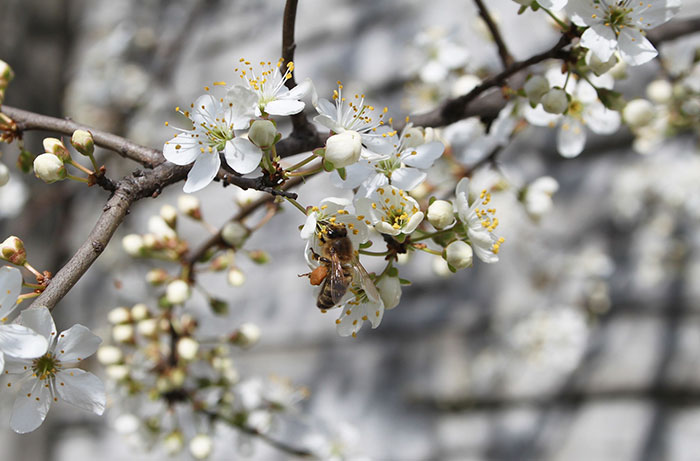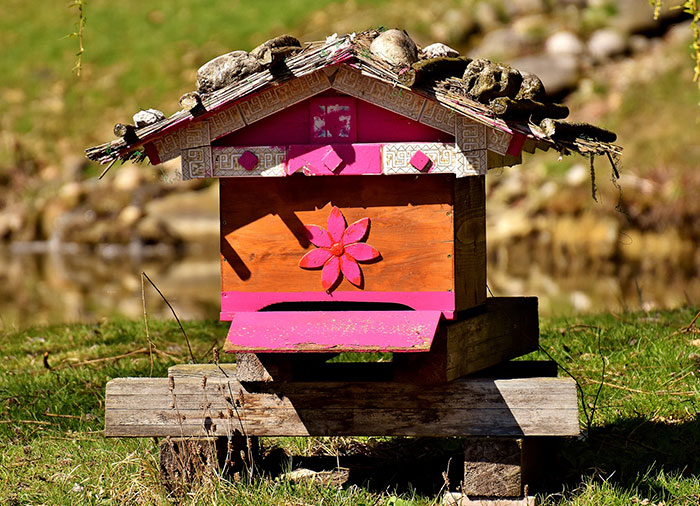
Bees are really the backbone of the environment, helping numerous plant and animal species by pollinating. We can thank bees for such delicious products as tangerines, apples, potatoes and so, so much more!
Sadly, as precious as bees are to our ecosystem, there's been an increasing worry regarding their numbers and what it means to the future of the world. “Populations are declining due to a variety of factors including human development, pesticides, disease, and a changing climate,” explained The Honeybee Conservancy representative. That’s why several organizations and volunteers are banding together to help out our little pollinators by spreading awareness and investing time and money to pass legislation which would help preserve many bee species by banning various insecticides.
1. Protect bee habitat

One of the threats to our bees is reducing habitat. We all can help bees in urban spaces by creating more gardens, green areas and habitat corridors with nectar-rich plants such as wildflowers.If you believe that they require huge fields full of flowers, that's not true! Green spaces can be established on street corners, balconies, while flowers can be planted along roadways. If you want to take a step further, get involved with the local government to advocate sensible solutions to the expanding urban areas.
2. Avoid harmful pesticides

Synthetic pesticides, fertilizers, and herbicides are some of the dangers that bees face. Avoid using pesticides in your garden and if you must treat your garden, go for organic options and spray at night since pollinators are least active at that time. You can also use beneficial insects such as praying mantises and ladybugs to help you out in the garden.
3. Create a Bee Bath

You can fill a shallow dish or container with clean water and add some pebbles and stones inside so that they poke out of the water. It'll be a perfect retreat for the bees to drink and rest as they take a break from foraging and pollinating.
4. Build homes for solitary and bumble bees

Even though it is common knowledge that bees live in a hive, it’s only really honeybees that do. Most of the types of bees are solitary creatures with 70 percent of bees living underground and 30 percent living in holes inside of trees or hollow stems. You can buy a “Bee condo” or “Bee hotel” online or build one of your own to help create some living spaces for those lone insects. After all, even if they will not bring you, honey, the little bees pollinate surrounding plants!
5. Plant a bee-friendly garden

You can help out bees by planting a bee-friendly garden and providing them a place to rest, pollinate and forage. Some helpful tips offered by The Honeybee Conservancy are:
- Avoid hybrid flowers, which might be sterile and have little or no nectar or pollen
- Make sure you’ll have blooms for bees year round.
- Leave an undisturbed plot for ground-nesting bees
- Plant flowers in patches – bees like to focus on one flower type at a time
- Skip the double flowers, which lack pollen
6. Plant trees

I bet we all imagine bees flying around in the garden, sitting on a lone sunflower or digging between the petals of a rose. However, bees love trees just as much as perennials! Bees get most of their nectar from trees! They aren't only an excellent source of food but a great habitat. While deforestation problem is still relevant, you can do your part by caring for and planting trees and joining communities with a similar interest in tree preservation!
7. Support your local beekeeper

One way to help the bees out is to start a honeybee hive. Yet, not all of us have the means and space for it. A smart alternative to that would be supporting a local beekeeper. They work hard to look after and nurture their bees, and their efforts help out both, the bees and people around! The best way to support beekeepers is to buy their product. Most will have honey and beeswax products to sell, but there are some who create soaps, lotions, and beeswax candles. And if you buy honey locally, the chances are bees collected from your flowers!
8. Sponsor a Hive

Another choice for those who cannot afford to start their hive is to sponsor initiatives that build hives. The Honeybee Conservancy is working on installing stocked honeybee hives and solitary bee homes in communities across the US. You can help them out by donating or looking for organizations around with similar initiatives.















This comment has been removed by the author.
ReplyDelete